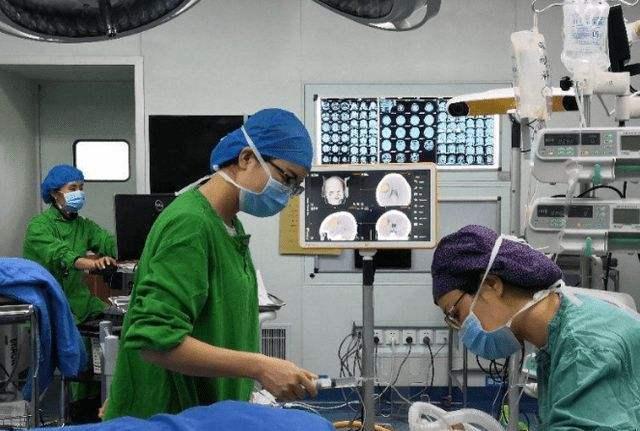Department of Anesthesiology, Punan Hospital, Pudong New Area, Shanghai GaoXinyue, Huang Chaochao
"Doctor, I'm so hungry, my hungry heart is panicked." A middle-aged woman walked into the endoscopy room, saw the anesthesiologist quickly changed her mouth and said anxiously: "I did not eat, did not drink water, really did not eat or drink", it turned out that she heard several doctors and nurses in front of her anxious to ask about the situation, and then responded again: "These days are eating some porridge, last night I took laxatives, I am hungry and panicked, I also have to bear with it, after all, the results of the examination are more important." ”
The anesthesiologist breathed a sigh of relief: "Fortunately, you did not eat, otherwise you missed this examination, and the next appointment will be delayed." ”
"Doctor, you can rest assured, I understand that I can't eat and drink water before anesthesia, it will affect safety, my own body is paying attention to itself, how can I not listen to the doctor's words?" The patient speaks to himself before anesthesia and then goes to sleep to complete the endoscopy.

Why do you have to emphasize that you can't eat and drink water before anesthesia?
Generally speaking, the anesthesiologist will visit the patient before the operation, ask about the medical history, past physical condition and some necessary physical examinations, and finally explain when the patient can not eat and drink water until before the operation, and if you take medicine before the operation, you can also drink a sip of water and flush the tablets. When the patient hesitates or does not understand, the anesthesiologist will emphasize it repeatedly, and the nurse in the ward will also emphasize it again.
So many people emphasize that patients cannot eat before surgery, what if the patient is hungry? Especially children, what should I do if I cry and make a lot of noise when I am hungry?
This is actually closely related to our stomach, which is like a retractable bag, with a sphincter at the junction of the esophagus and the stomach, which is like a rubber band. Under normal circumstances, this rubber band will firmly hold the entrance of the stomach, and the food in the stomach will not regurgitate out, but in the anesthesia state, the sphincter will become loose, the role of the rubber band will fail, and the connection between the esophagus and the stomach will become smooth, just like the aging rubber band, and the bag will not be tightly tied.
If we have just finished eating before surgery, the bag is full of food, under anesthesia, it is easy to cause the intraoperative gastric contents to flow upstream, regurgitate through the esophagus to the mouth, at the same time, anesthesia will inhibit swallowing and cough reflex, resulting in food reflux to the mouth is easily inhaled into the trachea and lungs, resulting in aspiration pneumonia.
If the inhalation is large, especially the stomach contents contain a lot of stomach acid, a high strength of acidic liquid will corrode the airway mucosa leading to poor breathing, and even acute respiratory failure, to know that humans rely on the trachea and lungs for oxygen exchange, respiratory failure is often difficult to rescue successfully!—— this is the risk of anesthesia when the stomach is full. The purpose of preoperative fasting and water fasting is to minimize gastric contents and inhibit gastric acid secretion through the method of "hungry stomach", so as to reduce the risk of reflux aspiration during anesthesia.
So, on the day of anesthesia, does it have to be "dripping without water"?
According to the relevant guidelines of the American Association of Anesthesiologists (ASA) and the Chinese Medical Association, it is currently believed that a small amount of water can be drunk 2 hours before anesthesia surgery, but the total amount should be strictly controlled within 5ml/kg of body weight (or 300ml in total). Clear water drinks refer to boiled water, carbonated drinks, sugar water, clear tea, and also include residue-free juices. Alcoholic liquids, breast milk, milk and formula are not clear drinks, they are liquid foods.
Adults or children consuming solid foods should stop eating digestible foods, including flour and cereals, at least 6 hours before surgery. Eating indigestible solid foods, including meat, eggs, and fried foods, should be stopped at least 8 hours before surgery.
For infants and young children, breast milk, milk and formula are consumed. Breast milk is more likely to be emptied by the stomach than milk and formula, so the last time infants and young children eat breast milk should be 4 hours before surgery and milk and formula 6 hours before surgery.
Scientific fasting and drinking
The above fasting and water fasting time is only a guiding principle, the fasting situation of patients of different ages and different surgeries should be correctly and scientifically fasted under the guidance of anesthesiologists to prevent excessive emphasis on fasting time and lead to the occurrence of hypoglycemia. In addition, after entering the operating room, the anesthesiologist replenishes the water and electrolytes needed by the human body through infusion to maintain the normal needs of the body and no longer feel "hungry and panicked".
【Warm tips】Point to pay attention, here is a lot of professional medical science, for you to decipher those things about surgical anesthesia ~